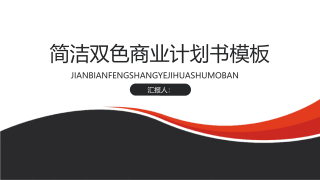非经济性报酬与知识型员工工作绩效的关系研究
浙江财经学院硕士学位论文IV摘要知识型员工是企业最宝贵的财富,他们的工作态度、行为和绩效极大地制约着企业的命运。传统的经济性报酬作为总报酬的核心组成部分,对于满足员工的需求,实现对员工的灵活性、弹性化激励,对影响和控制员工的工作绩效具有极其重要的作用,但随着经济的发展,社会的进步,员工对物质文化的需求日渐呈现出多样化的趋势,如何通过更有效、更经济的手段,全面有效地激励知识型员工,改善其长久的绩效?这是今天很多企业面临的重要挑战之一。本研究在以往学者对员工工作绩效研究的基础上,以知识型员工为对象,将研究视角转向了非经济性报酬,运用扎根理论深入探析了非经济性报酬所包含的主要因素,并构建了相应的理论...
相关推荐
-
USST_Arts_112480743自动生产线的同步维修模型及案例分析VIP免费
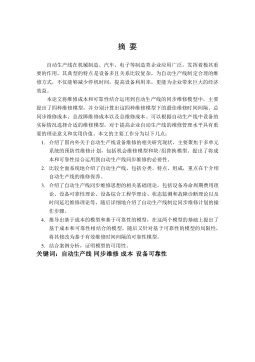
 2025-01-09 15
2025-01-09 15 -
USST_Arts_112480745基于供需网特征理念的企业间关系状态研究VIP免费
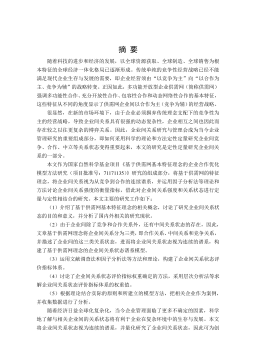
 2025-01-09 16
2025-01-09 16 -
USST_Arts_112480756 我国城镇化与能源消费结构间关系的研VIP免费
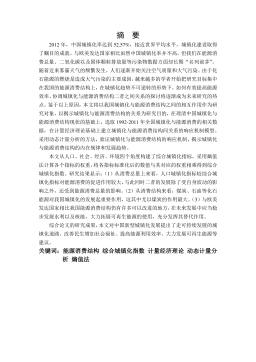
 2025-01-09 21
2025-01-09 21 -
USST_Arts_112490763 企业创新型团队社会网络、知识管理过程及团队创造力关系研究VIP免费
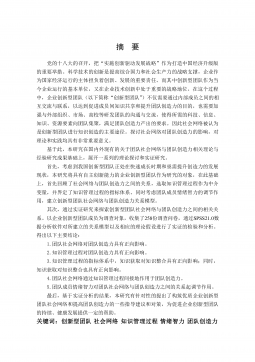
 2025-01-09 14
2025-01-09 14 -
USST_Arts_112490769创新团队执行力影响因素分析VIP免费

 2025-01-09 18
2025-01-09 18 -
USST_Arts_112070649基于团队自反性的科技型企业TMT特征对企业绩效的影响研究VIP免费
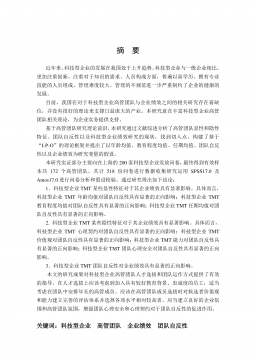
 2025-01-09 21
2025-01-09 21 -
TR公司工业机器人市场发展战略研究VIP免费
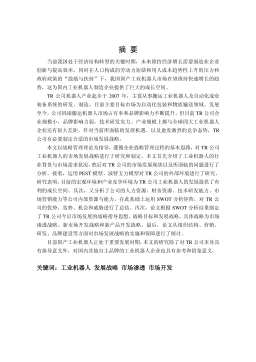
 2025-01-09 26
2025-01-09 26 -
二氧化碳套管式气冷器的研究VIP免费
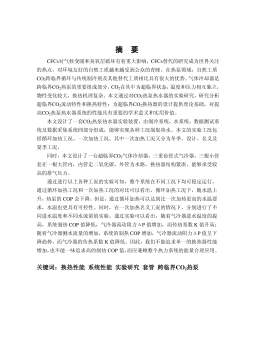
 2025-01-09 17
2025-01-09 17 -
非共沸混合物在微通道水平单管内流动沸腾特性VIP免费
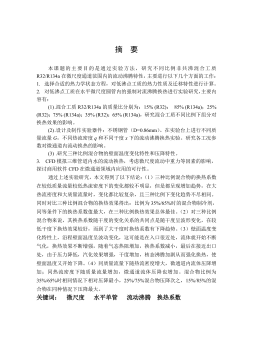
 2025-01-09 96
2025-01-09 96 -
基于MRO的连铸辊维护管理系统研究VIP免费
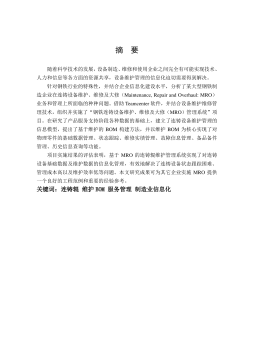
 2025-01-09 11
2025-01-09 11
相关内容
-

USST_Arts_112070649基于团队自反性的科技型企业TMT特征对企业绩效的影响研究
分类:高等教育资料
时间:2025-01-09
标签:无
格式:PDF
价格:15 积分
-

TR公司工业机器人市场发展战略研究
分类:高等教育资料
时间:2025-01-09
标签:无
格式:PDF
价格:15 积分
-

二氧化碳套管式气冷器的研究
分类:高等教育资料
时间:2025-01-09
标签:无
格式:PDF
价格:15 积分
-

非共沸混合物在微通道水平单管内流动沸腾特性
分类:高等教育资料
时间:2025-01-09
标签:无
格式:PDF
价格:15 积分
-

基于MRO的连铸辊维护管理系统研究
分类:高等教育资料
时间:2025-01-09
标签:无
格式:PDF
价格:15 积分


